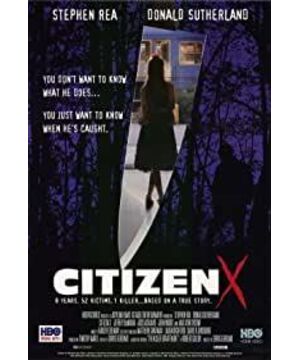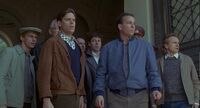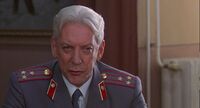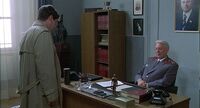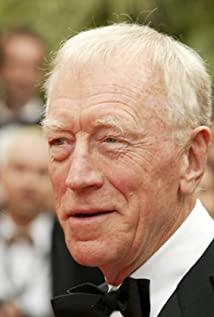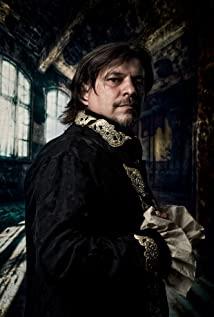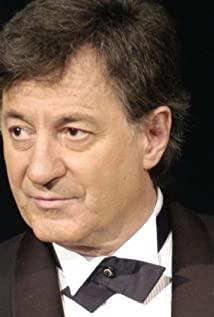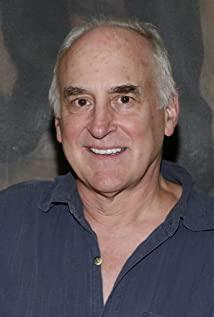Based on real events, the film tells the story of a Soviet forensic doctor who spent eight years, overcoming many obstacles and obstacles, and finally captured Andrei Chikatilo, the most notorious serial murderer in Soviet history.
At the time, less than four years after the official collapse of the Soviet Union, and exactly one year after Chikatiro was shot in prison.
Chikatiro was born in Yablocheoye, Ukraine in 1936.
A few years before he was born, Ukraine was in the midst of a famine caused by Stalin's forced collectivization of agriculture. Millions of people died of starvation. His older brother Stefan disappeared in 1931. His parents believed that he was caught by neighbors. Walking and eating—cannibalism was “normal” at the time, and even digging up and eating buried livestock and human corpses—and kept telling young Chikatillo about it.
In 1941, when Chikatiro was 5 years old, his hometown was occupied by the invading German army. He witnessed his father being taken into a German concentration camp and his mother being gang-raped by German soldiers.
After the war, his father, who survived the concentration camp, was designated as a collaborating traitor because he did not sacrifice. Affected by this, Chikatiro, who has excellent grades, lost the opportunity to further his studies.
No one is sure to what extent these experiences shaped the later Chikatiro? He also married and had children like a normal person, although according to his wife Fayina, he was often unable to have a normal erection for sexual intercourse.
Until December 22, 1978!
That day, Chikatiro met a 9-year-old girl, Yelena Zakotnova, at the train station, lured her to a riverside hut with a piece of chewing gum, raped her, and stabbed her to death. The excitement in the process made him find the pleasure he had not seen for a long time.
"I found myself changing into an alter ego in different circumstances. I couldn't control it. It was like being controlled by the devil. Although it was against my nature, I couldn't resist."
After that day, and until his capture in 1990, Chikatiro roamed the train or bus stops throughout Rostow, looking for runaway or single targets, or to lure or inflict petty favors to lure victims into the forest, etc. In a secret place, he repeatedly stabbed to death with a knife, then committed corpse rape and drank the blood of the victim.
And every time, he will smash the victim's eyeballs.
Chikatiro's entire crime lasted 12 years, and finally the official identified 53 victims, 35 of whom were teenagers under the age of 20, the youngest being a 7-year-old boy. But some researchers believe that there are at least 70 people.
The media called him "The Butcher of Rostow", and because the crime scene and burial place were mostly forests, he was also known as the "Forest Killer".
Chikatiro was shot in prison in 1994, and his last words are said to have been:
"I am a mistake of nature, a mad beast..."
Although extremely cruel, Chikatiro did not differ in his modus operandi. There is nothing particularly clever, there are no anti-reconnaissance measures, the handling of the body is quite sloppy, and even the whole person is a little confused and crazy, and he was suspected when he committed the crime for the first time.
His ability to escape justice for a long time and continue to commit crimes madly has a great relationship with the social and political environment of the Soviet Union at that time, which is also the theme of the movie "Citizen X" - the biggest opponent is not the murderer, but the system.
The title "Citizen X" comes from the name given by psychologists when they "portrait" criminals in the film. It is equivalent to "Suspect X". It also implies that every citizen may be a suspect. made part of this tragic crime.
Pictured on the right is the protagonist of the film - the forensic doctor Balokov who insists on the investigation to the end, played by Stephen Rea - who was shortlisted for the 1993 Oscar winner for "The Crying Game" and lost to Al Pasi. promise.
On the left of the picture is the only supporter of Borokov - Rostow local militia commander Fetisov, played by Donald Sutherland - Bao Xiaoqiang's father in "24", the man in "The Big Shot" Taylor.
From the beginning of the 1980s, the local militiamen in Rostow discovered a body. Under the insistence of the newly arrived forensic doctor, Baolokov, they searched the forest near the scene and found many more bodies.
Baolokov keenly felt that this was a serial murder case that was still going on, but was immediately refuted by the local bureaucratic team - serial killers are a pathological manifestation of Western capitalist society, and socialist countries simply cannot exist!
The local criminal police even quickly found a gypsy from a mental hospital as a scapegoat. However, while the scapegoat was being held, the murder happened again. The bureaucrats had no choice but to appoint Bolokov to be in charge of the task force, but they rejected him. All proposals for additional staffing, seeking help from the FBI, releasing the case to the public, etc. Because:
"Adding more staff means telling the incompetence of local officials in Moscow; asking the FBI for assistance is tantamount to admitting the backwardness of one's own technology; and publishing the case means admitting the "serious political mistake" of "serial killers in the Soviet Union."
< Photo 8>
This psychology was later called "Chikatilo Syndrome", which means blind denial of the phenomenon of serial killers due to subjective factors such as politics, religion, cultural traditions, etc.
The life of the dead and dying is not important, and whether the murderer can be caught is not important. What is important is political correctness, and what is important is the official career and face.
Subsequently, Borokov's correct direction of solving the case - monitoring suspicious people who accosted teenagers at the railway station - was rejected by people from Moscow, who believed that alien demonized homosexuals were the suspects, and a large number of police were dispatched. Go catch gays.
Even Bolokov personally went to the train station to monitor and found the real murderer.
Max von Sydow, who plays Chikatiro, is the royal actor of the master Bergman.
He could only be forced to release him, because the testing technology was outdated (there were too few comparison sources), and Chikatiro's blood sample could not be compared with the semen on the victim. More because:
So far, the rigid system, stupid bureaucracy, and so-called political correctness have become the umbrella for serial murderers.
When the angry Borokov complained, Fetisov, the only official old fritter who secretly supported him, just took it for granted.
"Maybe he's stupid, but he's in power."
One after another corpses still appeared every now and then. The so-called investigation and pursuit of the culprit became a long, painful and desperate torment. I was numb, but never gave up...
In the blink of an eye, in 1990, a decisive turning point appeared, the control of the Soviet Union, which was on the verge of collapse, weakened, and Lithuania and Latvia declared their independence one after another. On June 12, Russia also issued a declaration of sovereignty, and the political situation in Moscow changed dramatically.
The portrait of Lenin on the wall was torn apart
by Fetisov, who was familiar with the rules of survival of the system and seized the opportunity to become the local authority in Rostow. Soldiers were sent to station at the station, and psychologists were invited to paint the suspects...
Finally, after committing one last crime at a small remote railway station, Chikatiro fell into the sight of Baolokov and was subsequently captured.
But Chikatiro insisted not to plead guilty until he heard the psychologist's meticulous "portrait" of him, especially the detail of poking the victim's eyeball every time, Chikatiro finally collapsed...
He believed in the legend that the eyes of the deceased would leave an image of the murderer, even after death...
Bolokov's deeds have also been appreciated by his FBI counterparts, where the serial killers are forcibly transferred every 18 months to prevent the inevitable psychological sequelae due to excessive depression. , and he persisted for almost ten years.
Although it is about a serial killer, the whole movie is completely without the usual Hollywood excitement and heroism. It is a process of constant disappointment of a conscientious policeman being suppressed and constrained by the bureaucracy and the system for a long time. It is closer to the real record, the rhythm Slow or even depressing.
But like all great crime movies, it not only tells a case, but also cuts into an era, accurately restoring and criticizing the social status quo of the Soviet Union at that time, the declining decadence, pedantic officials, rigid system...
It reveals the reasons why the murderer has been able to commit crimes for a long time, the collective self-deception, the suppression and blockade of the news media, and the murderous criminals are not isolated, they are all created by society and the environment... Although it was shot by Americans.
A few years later, Feng Junhao brought the unsolved "Hwaseong Serial Murder Case" to the screen and filmed the movie "Memories of Murder". Similar to "Citizen X", his focus was not on serial killings. The case itself is a process in which conscientious police officers are constantly being suppressed or even forced into violent madness. It cuts into the turmoil of the entire Korean military and political society at that time, and finally remains unresolved... It has become the best crime film in Korean film history, or it can be removed. The word crime can also be used.
The same case, the serial killer, was rewritten by British writer Tom Rob Smith into the novel "Child No. 44", which is also a superb work, although Tom Hardy and Galio adapted last year The movie of the same name starring Derman is really average.
View more about Citizen X reviews


